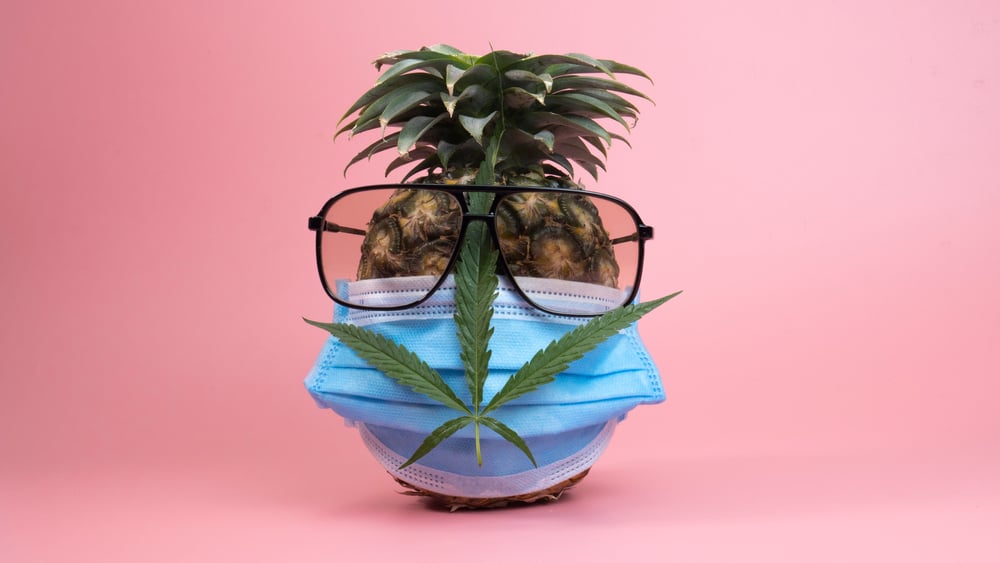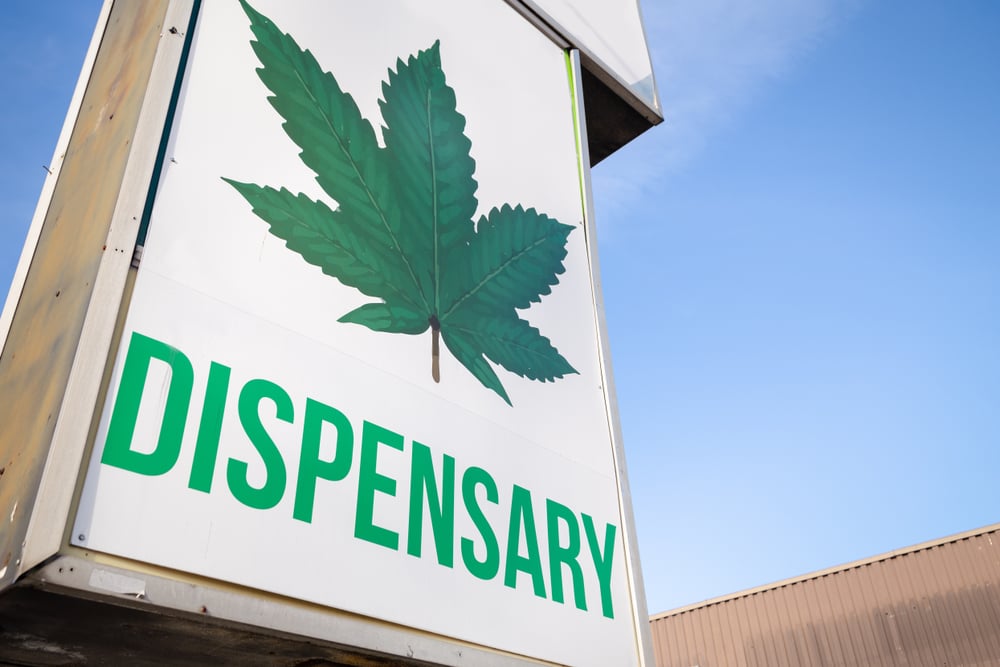COVID-19 and the Marijuana Industry
By CLOVR Cannabis
June 22 2021

Across the country and the world, everyone felt the pressure from COVID-19. The massive effort to save lives by slowing the spread of the virus changed how we lived, worked and socialized – the “new normal“. Like most companies, 2020 brought about a strange, uncertain world. But nevertheless, there was a massive increase in cannabis sales. Several states designated cannabis dispensaries as “essential” businesses. The industry was praised for efforts to fight the spread of COVID-19, earning support from Congress. And the virus brought about changes in how marijuana-based companies did business.
With so much uncertainty for businesses in the year 2020, what a relief it was to see COVID-19 and the marijuana industry helping each other out!

Marijuana sales rose in 2020, with almost $18 billion of cannabis products purchased – a 67% increase over 2019 sales. Nine states had more than double the 2019 sales in 2020. Some places reported an increase of over 300% for time periods in 2020 when compared with the same weekday before the stay-at-home order.
Many factors were at play to bring about the increase. It was a natural time to turn to cannabis since people were suddenly separated from the normal everyday activities and social life. Marijuana helped to ease the stress brought about by a global pandemic. With cannabis becoming much more mainstream, illegal activity has been replaced with buying supplies legally. To say that cannabis businesses worked hard to meet growing demand is an understatement. People were ready for new choices.
Edibles have newfound popularity. Established cannabis customers have started spending more – an average of 33% more per month. Some say this is the main factor behind the big increase in sales.
When localities started issuing shutdown orders of businesses not classified as “essential,” there was some concern about whether cannabis dispensaries and delivery services would make the list. At first, cities like San Francisco and Denver did not include marijuana businesses as essential. But there was a strong outcry from the public. In San Francisco, it only took a day for the mayor to change the city’s public health order, adding dispensaries and cannabis delivery services to the list of essential businesses.
Eric Altieri, the executive director of the National Organization for the Reform of Marijuana Laws, said, “Cannabis is a safe and effective treatment that millions of Americans rely on to maintain productive daily lives while suffering from diseases and ailments. It is the very definition of essential that these individuals can still access their medicine at this time.”
In the states with legal marijuana and where dispensaries were deemed essential, there was an increase in cannabis sales. Those states included California, Colorado, Illinois, Maryland, Michigan, New Jersey, New Mexico, New York, Ohio, Oregon and Washington. Unfortunately, at the time of hard-core lockdowns worldwide Missouri didn’t make the cut for MJ as an essential business. Nevertheless, stocks for cannabis companies also saw increases because of the increased demand and the state continued chugging along with its license issuing.
U.S. Senator Cory Gardner from Colorado praised the positive contributions of the marijuana and hemp industries during the pandemic. He said, “… you have hemp businesses that are now producing cotton swabs for medical needs … We have protective equipment that’s being donated … by the marijuana industry.”
Cannabis companies also took the lead in practices to protect their customers. Dispensaries made changes to enable customers to buy in-store, following protocols like hand sanitizer stations and limiting the number of customers allowed in the store at a time. Many dispensaries offered special opening times for people in vulnerable groups, such as senior citizen and folks with conditions that made/make them particularly susceptible to contracting the virus.

Relaxed guidelines in some states allowed more flexibility with marijuana sales location requirements, opening the opportunity for curbside pickup and delivery services. This was especially important for those with compromised immunity who couldn’t make a trip to the stores. Online ordering also became an option in some areas.
Cannabis companies weren’t able to host live events in 2020. They got creative, planning virtual parties to celebrate the 4/20 holiday on April 20, 2020. There were virtual concerts, giveaways and discounts that helped companies connect to their customers.
The federal CARES Act provided a $2.2 trillion stimulus. However, because cannabis is still illegal at the federal level, none of that funding flowed to cannabis companies.
The marijuana industry had been under strain before the pandemic, with many companies being forced to lay off workers. The illegal federal status continues to cause difficulties for the industry. Still, positive attention from Congress during the pandemic shows promise for acceptance.
Medical marijuana was approved by Missouri voters back in 2018, and implementing the legalization has proved a difficult task for the state. Marijuana dispensaries have finally been licensed and were opened in October. The delay was in part due to COVID-19. Over 90,000 patients have been approved to receive access to medical marijuana, and the dispensaries have had sales of over $2 million per week.

In Missouri, social distancing requirements prevented a recreational marijuana legalization campaign from collecting signatures for ballot inclusion. Organizers will continue their efforts now that the vaccine has been widely available and new COVID-19 cases are at an all-time low.
Few years could be as trying as 2020 was, but the marijuana industry rose to the challenge. The industry’s strength has been proven. It’s not just that it’s a product that consumers wanted and needed during the pandemic – the industry has also shown that its leaders possess the ability to improvise and innovate. This has created significant opportunities for employees and investors. It could be that we will look back on the pandemic as the time when marijuana was able to find true acceptance in every regard.
And this begs the question: could marijuana be recession- and other downward economic turn-proof? A lot of us think that is a rhetorical question!